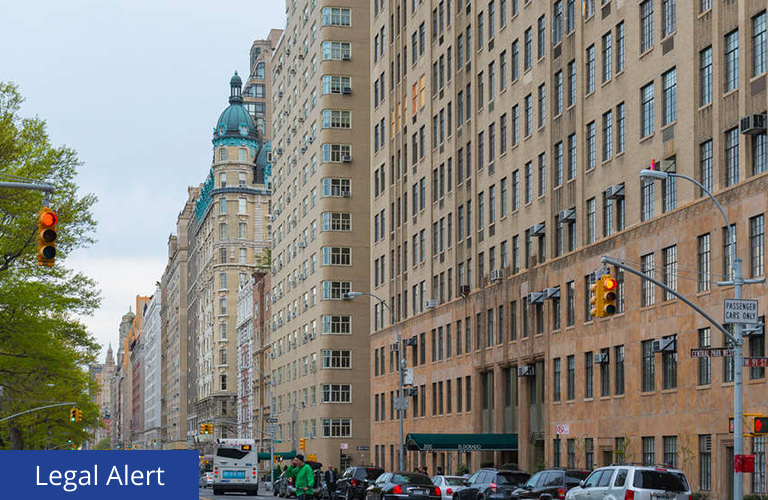
Recently, the U.S. Attorney’s Office for the Northern District of Illinois announced the creation of a new section of the Criminal Division focused on the prosecution of healthcare fraud. The new section will be staffed with six federal prosecutors, all based in Chicago. According to the press release, the newly created Healthcare Fraud Section “will be tasked with prosecuting defendants in all types of healthcare fraud, such as false and fraudulent claims submitted by transnational criminal organizations to America’s health insurance programs; upcoding and unbundling schemes; scams by providers and individuals against Medicare and Medicaid; fraudulent billing; and illegal kickbacks,… Read more

On August 7, 2025, President Trump signed an Executive Order directing the Department of Labor (“DOL”) and the Securities and Exchange Commission (“SEC”) to ease regulatory barriers to alternative assets in defined contribution plans that provide for participant-directed investments, such as 401(k) plans. The agencies are tasked with reviewing current guidance and proposing new rules to support broader participant access to private equity, cryptocurrency, real estate, and other nontraditional investments. Clearing the Way for Alternative Assets in 401(k) Plans. The Executive Order directs the DOL, within 180 days, to (i) re-evaluate fiduciary guidance under ERISA related to offering asset allocation… Read more

By Morgan Manley, Isabella Loarte-Ciudad, and James Doar New York law presumes that depositions will be conducted in person. As such, the burden has historically fallen on the party requesting a remote deposition to establish that an in-person deposition would cause undue hardship. Previously, most New York courts favored in-person depositions and strictly construed what constituted “undue hardship.” During the Covid pandemic, courts shifted the presumption and required the opposing party to justify the need for in-person depositions. Recently, trial courts are split on whether to return to the pre-pandemic undue burden standard or whether to require a lesser showing… Read more

As many of you know, on July 4, 2025, the President signed the One Big Beautiful Bill Act (OBBBA) into law. This legislation extends and builds on key provisions of the 2017 Tax Cuts and Jobs Act (TCJA), including individual income tax changes like retaining current rates and increasing the SALT deduction. Most importantly for wealth planning, OBBBA eliminates the looming sunset of the federal estate, gift, and generation-skipping transfer (GST) tax exemptions. This shift makes it essential to revisit your current estate plan to confirm it reflects your long-term goals and, where applicable, to assess whether further planning could… Read more

U.S. companies who do business overseas now have another worry to add to their compliance list: the Data Security Program (DPS). The DPS is a program implemented under the International Emergency Economic Powers Act (IEEPA) and enforced by the U.S. Department of Justice (DOJ)’s National Security Division (NSD). It is aimed at “prevent[ing] China, Russia, Iran, and other foreign adversaries from using commercial activities to access and exploit U.S. government-related data and Americans’ sensitive personal data to commit espionage and economic espionage, conduct surveillance and counterintelligence activities, develop AI and military capabilities, and otherwise undermine our national security.” According to… Read more

The One Big Beautiful Bill (the “Bill”) was signed into law on July 4, 2025. The Bill is extensive and includes a number of provisions that affect employee benefits, as summarized below. Health Savings Accounts (“HSAs”) The final version of the Bill did not include many of the proposed revisions to HSAs that were included in earlier drafts. However, the following changes were codified: Telehealth safe harbor: In response to the COVID-19 pandemic, Congress enacted a safe harbor to ensure HSA eligibility would not be negatively affected by telehealth services provided before participants have satisfied the deductible. The Bill retroactively… Read more

Effective July 3, 2025, the Florida Contracts Honoring Opportunity, Investment, Confidentiality, and Economic Growth (“CHOICE”) Act significantly enhances employer protections under certain noncompete and garden leave agreements, creating a presumption that covered noncompete and garden leave agreements are reasonable, enforceable, and do not violate public policy. The law establishes Florida as having one of the strongest noncompete enforcement provisions in the country. Effective Date: The CHOICE Act applies only to noncompete and garden leave agreements entered on or after July 1, 2025. Existing agreements are unaffected. Who is Covered: The CHOICE Act applies to agreements with “covered employees,” defined as… Read more

This case involved a security for costs application where an escrow agent (a law firm) and an account bank (a third-party account bank) refused to release escrowed funds to an OFAC sanctioned entity. The judgment highlights the key risks for escrow agents and account banks, including when: sanctions impact their respective contractual obligations under an escrow agreement or a banking agreement (as applicable); and an escrow agent refuses to make payment to a sanctioned party (to avoid the escrow agent breaching sanctions). This case arises in a shipping context – where law firms more often act as escrow agents –… Read more

Owners of cooperative apartments in New York are both renters, pursuant to their proprietary lease, and owners, pursuant to their stock ownership in the cooperative corporation. Oftentimes the legislature overlooks this distinction resulting in unintended consequences for co-op buildings and owners. There are presently two proposed laws pending in Albany to address the legislative confusion over whether cooperative buildings should be subject to the same legal restrictions as rental buildings. State Assemblyman Braunstein and Senator Stavisky introduced Assembly Bill 1701/Senate Bill 1745, which clarifies that cooperative apartment proprietary lessees are not to be considered “tenants” in future residential landlord-tenant laws… Read more

On May 15, 2025, the U.S. Departments of Labor, Health and Human Services, and the Treasury (collectively, the Departments) announced that the Departments would stay enforcement of the final Mental Health Parity Act rules issued under the Biden Administration in September 2024 (the 2024 Final Rule). Specifically, the Departments: are reconsidering the new requirements imposed on group health plans under the 2024 Final Rule, including whether the 2024 Final Rule should be rescinded or amended. More information about the 2024 Final Rule is available here. announced that they have asked the court to pause a lawsuit challenging the 2024 Final… Read more











